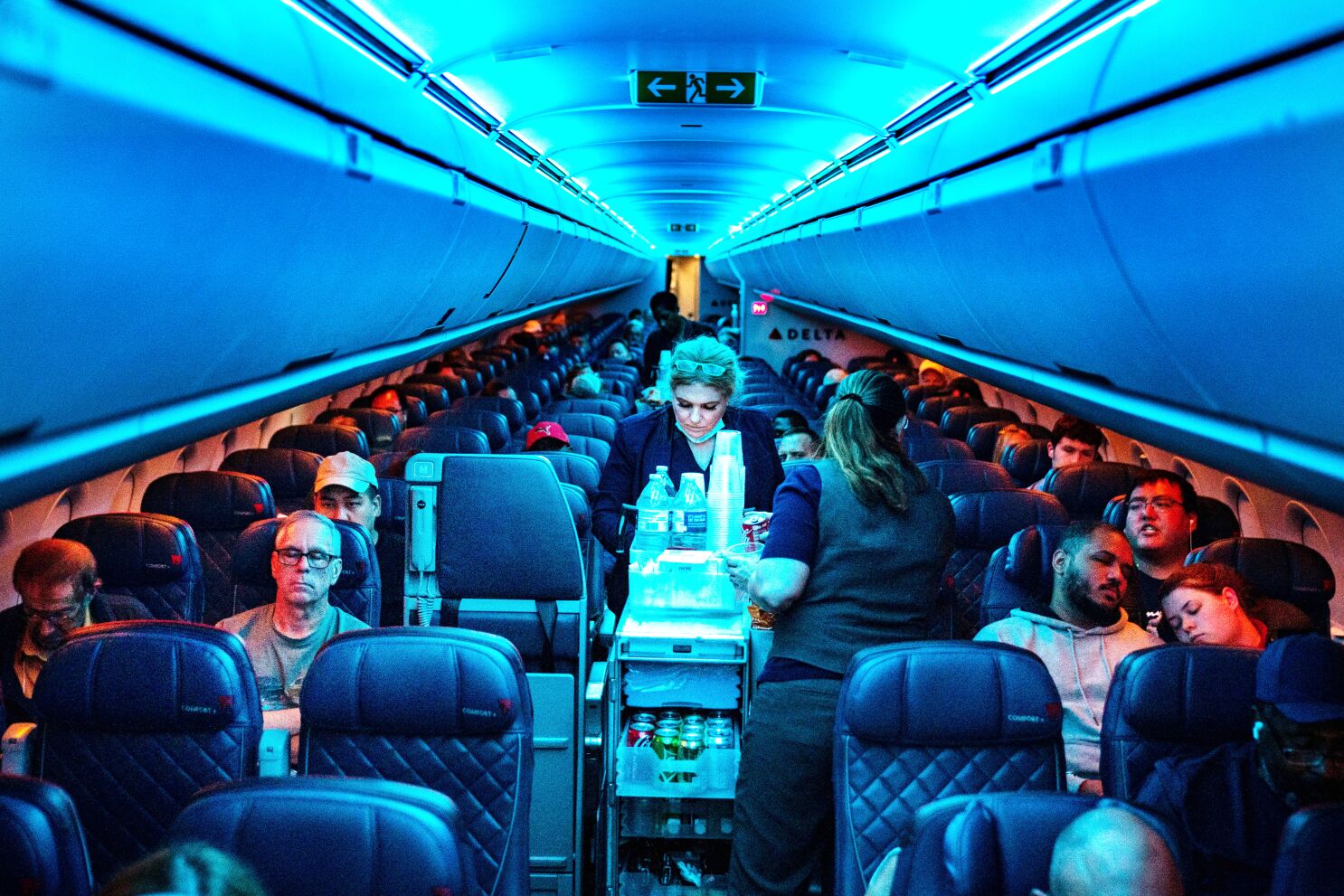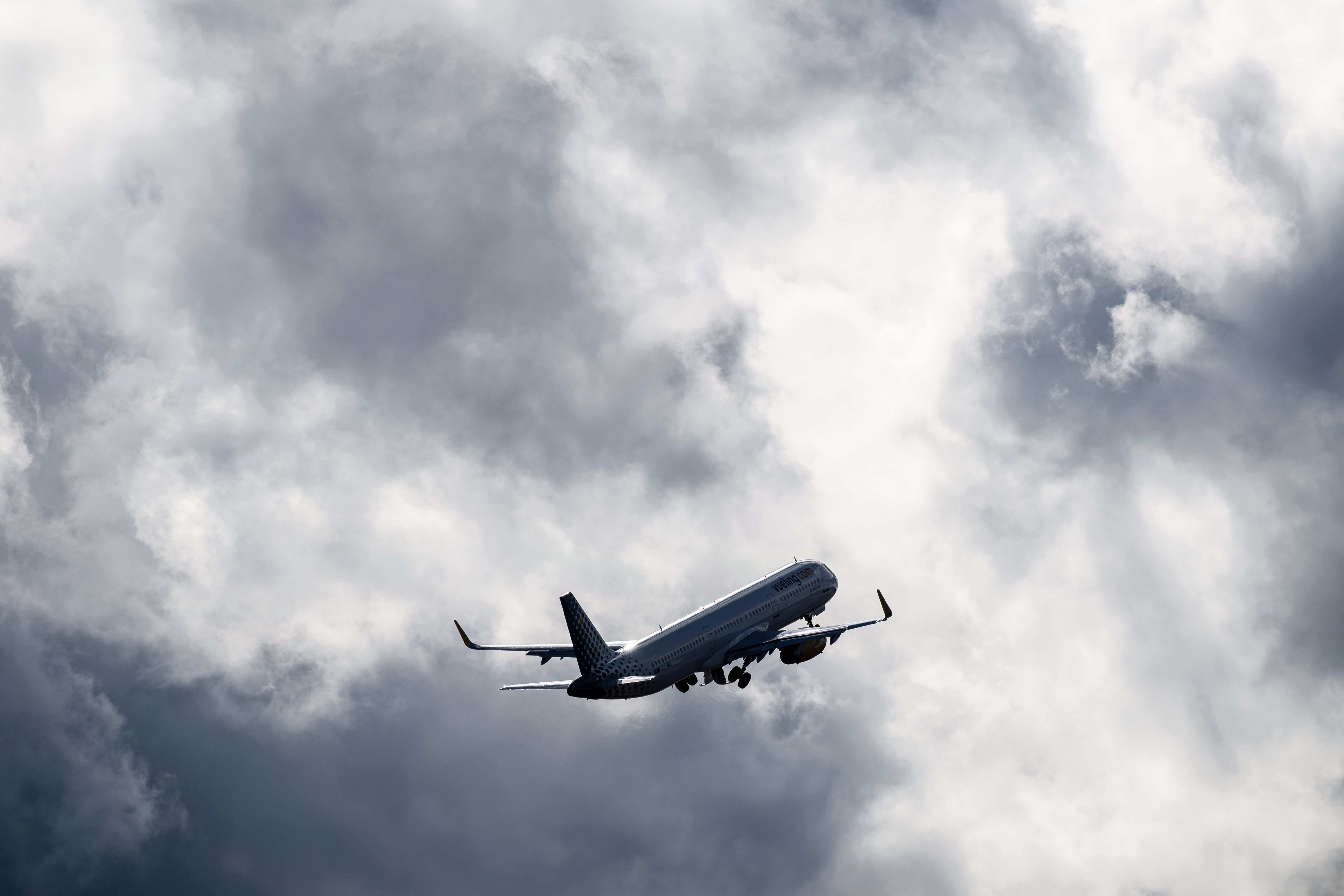Are Airplanes Safe - Coronavirus concerns: is flying dangerous? What can I do to reduce the risk? : Goat and Soda As places around the world begin to reopen, people are thinking about getting back on the plane – and wondering if it's safe.
Passengers wear masks on a Myanmar Airways flight from Yangon. Most airlines now require passengers to provide masks. Paula Bronstein/Getty Images hide caption
Are Airplanes Safe

Passengers wear masks on a Myanmar Airways flight from Yangon. Most airlines now require passengers to provide masks.
How To Calm Anxiety When You're On A Flight
Since the coronavirus started spreading around the world, the number of people flying has gone down. In the United States, for example, the number of flyers has fallen by more than 90% since the beginning of March. On Thursday, the TSA screened 234,928 travelers, compared to 2,611,324 people the same week last year.
As some countries begin to allow businesses to open and remove products from their homes, people are wondering about the risks of flying.
The Centers for Disease Control and Prevention recommends avoiding travel as much as possible, "especially if your travel is not essential...Do not travel if you are sick or if you are traveling with someone who is sick." Travel increases the chances of contracting and spreading COVID-19, according to the CDC.
Dr. Mark Gendreau, chief medical officer at Beverly Hospital in Massachusetts and professor of emergency medicine at Tufts University, agrees: Despite the ban on early withdrawals, he thinks it's not the best time to catch a flight, say, on vacation. the beach.
Staying Safe In The Air And Other Expert Advice On Air Travel
"If you are going on holiday it would be a good idea to postpone it a bit and in the short term I would say another two months. We still have a lot of viral activity there." he says.
Dr. “Individual travelers decide what is urgent and necessary,” says Henry Wu, professor of infectious disease medicine at Emory University and director of its TravelWell Center. "When you fly, you're likely to be surrounded by people from all over the world, whether it's on the plane or at the airport. Now there's going to be some impact, and it's going to be very difficult to know the height.”
He says personal protective measures such as face coverings, hand hygiene and maintaining social distancing all help reduce the speed of the virus - but he warns that these measures do not completely eliminate the risk.

To find out if it's safe to fly, Wu suggests, start by doing a self-assessment: "Your medical history, your age, and if you don't have any other risk factors."
Worried About Crowded Flights? Know Where Your Airline Stands
Second, consider the importance of travel. In some cases, for example if you want to visit a dying family member or say hello to a new grandchild, you may feel the urge to leave. Other times he may be cautious.
Third, assess your risk tolerance. Some states and countries require a 14-day quarantine period for arriving visitors - Hawaii, which requires all air travelers to return to their homes or accommodations within 14 days of arrival and monitor their health, liable a fine of $5,000,000 or one year in prison for offenders.
"I think everyone should do a little research to see what their risk tolerance is and the importance of travel and their ability to take precautions," Wu says.
Aircraft are locked in place. The person sitting next to you on the plane may start to sneeze or cough uncontrollably, which can cause anxiety. Make sure you are prepared for the stress of your uncontrolled environment during a global pandemic.
Are We Ready For Takeoff? Harvard Experts Weigh In
The last time this reporter flew was in early March. It was not a comfortable experience: I was full on a crowded plane, aware of every cough or sneeze (including my own) and no way of knowing if the person sitting next to me might be carrying the virus. He was resting on the ground.
Gendreau says your risk in a confined space like an airplane comes down to three things: how long you spend, how far you are from your starting point, and how contaminated those sources are.
Although there is no way to eliminate these risks, there are steps you can take to reduce your risk of contracting the disease.

Although much is still unknown about COVID-19, the virus is believed to be spread primarily through respiratory droplets produced when an infected person coughs or sneezes, according to the CDC. A mask can protect you from droplets from other passengers if you sneeze or shiver and can also protect your mouth and nose from droplets from others.
G And Airplane Safety: 5 Questions Answered About The Wireless Rollout
All major US airlines, and some international ones, now require crew and passengers to wear face coverings during flight, except when eating or drinking. Very young children are exempt as well as those with medical conditions that prevent them from wearing the veil.
Wu says your mask should cover your nose and mouth and not be too loose. Make sure your hands are clean when applying and removing the mask, and always wash or sanitize your hands after removing the mask.
While airlines have reduced flights, some flights in recent weeks have been sold out. After public outcry, airlines are now taking steps to promise more space to passengers: many don't seat passengers in the middle of a plane, and if space permits, they seat passengers in an entire row . In late April, Bethany Long Newman traveled on the American from Chicago to Charleston, USA. When he was on the plane from Chicago to Charlotte, "Everyone had their own line, and they put empty lines between people."
But things turned sour on his next flight, a small plane from Charlotte to Charleston: "When we got there, a flight attendant said, 'You can sit wherever you want.' Newman and his family both sat down, but someone sat behind them causing Newman and his family to move.
Single Engine Airplanes Are Safe...as Long As The Engine Doesn't Fail
Wu says it's easy to stay spread out now, with fewer people on the plane, but it will get harder once the journey begins.
United Airlines says that starting next week until the end of June, it will aim to notify passengers 24 hours before departure if their flight will be 70% full. Customers can choose to check in for another flight or receive a travel credit.
People sitting in the aisle are more likely to come into contact with other passengers and staff when walking down the aisle or pulling something out of the rack.

"If it's a crowded plane, you can't get on that aisle without accidentally hitting someone sitting there," says Gendreau.
Airlines Want To Make Flight More Sustainable. How Will They Do It?
These window passengers are also less likely to get up during the flight to use the bathroom or move around – activities that can expose you to other people and surfaces.
Gendreau says that in this age of less frequent theft, he would go to the window or middle seat instead of the aisle.
"Hand gel: don't leave without it," Gendreau said. He says the best places on the plane are the bathroom, the bathroom door curtain and the newspaper bags and the tray table.
If you use the bathroom, use hand sanitizer after returning to your seat, to eliminate germs from the doorway and doorway.
Is It Safe To Fly? Two Scientists Tell You What You Need To Know |
Wu says it's important to be aware of what you touch: "If you touch anything that might be impure, anything that doesn't concern you, be aware of that", and wash your hands if necessary .
He says that in general it's not a bad idea to carry a pen to work on elevator buttons and such, instead of using your fingers. However, you should be aware that you are carrying a dirty pen.
Airlines have stepped up efforts to clean the cabin, disinfecting it with machines that use harmful fumes. Crews also go through cleaning supplies to clean the cabin, such as seat belts, blinds, trays, and screen backs.

Your company may provide disposable tableware and hand sanitizer upon check-in, but you may bring your own if not. Gendreau hasn't flown since the arrival of COVID-19, but he was already in the habit of bringing wipes and cleansing gel.
Faa Chief To Testify At U.s. House Hearing On 5g Impact On Aviation Safety
"I just wiped down my seatback, my windshield [fan], my seatbelt. And then I wiped down where the newspaper stuff was." "Now I'm going to throw away the wipes, remove my gel and wash my hands."
Wash your hands, put on your mask and adjust it for comfort - and leave it alone.
"If I have a black eye or something, my hand is going to see it unless I'm clean on my hand," Gendreau says.
"The good news is that the jet stream is very good and is still being filtered and distributed," says Wu.
The Odds Of Catching Covid 19 On An Airplane Are Slimmer Than You Think, Scientists Say
Many aircraft are operated by
Vintage airplane blanket, best airplane blanket, airplane travel blanket, airplane blanket material, crochet airplane blanket pattern, travel blanket for airplane, airplane crochet blanket, airplane milestone blanket, airplane throw blanket, airplane blanket size, best travel blanket for airplane, airplane blanket and pillow
0 Comments